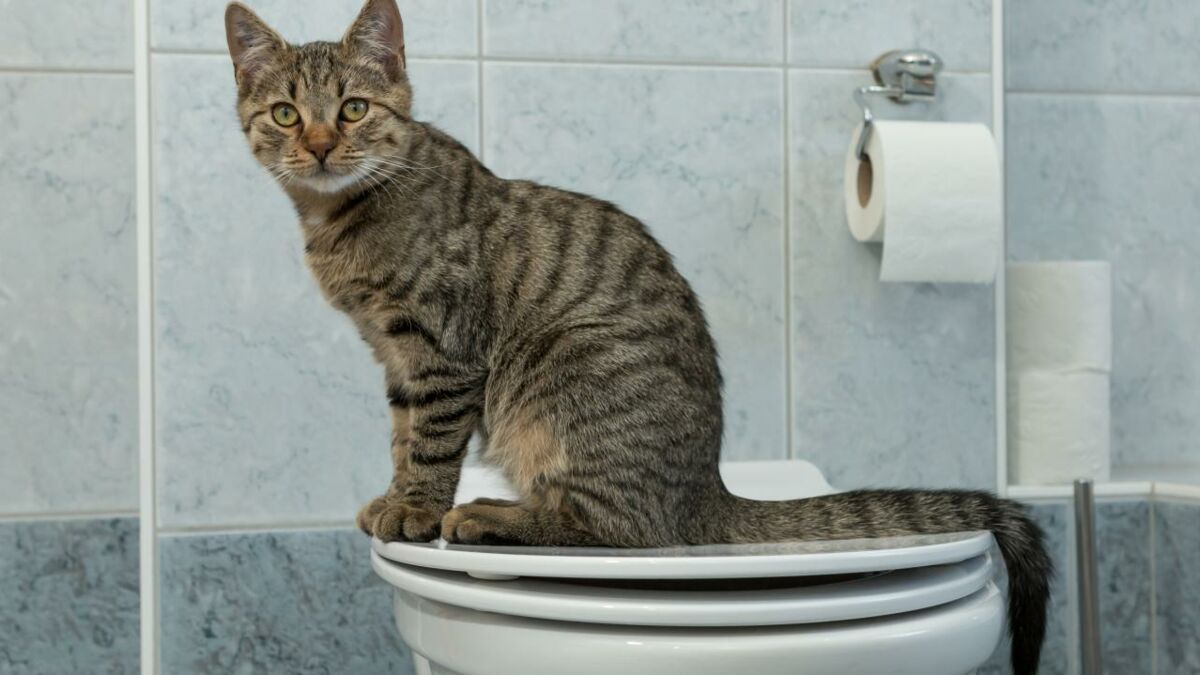Prevent Clogs and Damage: Never Flush Cat Poop Down Your Toilet - Expert Recommendations
Prevent Clogs and Damage: Never Flush Cat Poop Down Your Toilet - Expert Recommendations
Blog Article
The content down below relating to Can You Flush Cat Poop Down The Toilet? is incredibly fascinating. Read it yourself and decide what you think of it.

Intro
As cat owners, it's essential to bear in mind exactly how we take care of our feline buddies' waste. While it may appear hassle-free to purge pet cat poop down the commode, this method can have destructive effects for both the atmosphere and human health and wellness.
Ecological Impact
Purging feline poop presents unsafe virus and bloodsuckers into the supply of water, posing a substantial risk to marine ecological communities. These pollutants can negatively affect marine life and concession water high quality.
Wellness Risks
Along with ecological worries, flushing cat waste can additionally posture wellness dangers to people. Feline feces may contain Toxoplasma gondii, a parasite that can create toxoplasmosis-- a possibly serious health problem, particularly for pregnant women and people with damaged body immune systems.
Alternatives to Flushing
Fortunately, there are safer and extra liable methods to throw away feline poop. Consider the adhering to alternatives:
1. Scoop and Dispose in Trash
One of the most usual technique of getting rid of cat poop is to scoop it right into an eco-friendly bag and throw it in the garbage. Make sure to utilize a dedicated clutter scoop and deal with the waste without delay.
2. Usage Biodegradable Litter
Choose eco-friendly feline litter made from products such as corn or wheat. These trashes are eco-friendly and can be safely disposed of in the garbage.
3. Bury in the Yard
If you have a backyard, consider hiding cat waste in an assigned area far from vegetable yards and water sources. Make sure to dig deep adequate to avoid contamination of groundwater.
4. Install a Pet Waste Disposal System
Purchase a pet garbage disposal system specifically made for cat waste. These systems make use of enzymes to break down the waste, decreasing smell and environmental effect.
Conclusion
Accountable pet possession extends past providing food and sanctuary-- it also entails proper waste administration. By avoiding flushing feline poop down the commode and opting for alternate disposal approaches, we can minimize our environmental footprint and shield human health.
Why You Should Never Flush Cat Poop Down the Toilet
A rose by any other name might smell as sweet, but not all poop is created equal. Toilets, and our sewage systems, are designed for human excrement, not animal waste. It might seem like it couldn’t hurt to toss cat feces into the loo, but it’s not a good idea to flush cat poop in the toilet.
First and foremost, assuming your cat uses a litter box, any waste is going to have litter on it. And even the smallest amount of litter can wreak havoc on plumbing.
Over time, small amounts build up, filling up your septic system. Most litter sold today is clumping; it is made from a type of clay that hardens when it gets wet. Ever tried to scrape old clumps from the bottom of a litter box? You know just how cement-hard it can get!
Now imagine just a small clump of that stuck in your pipes. A simple de-clogger like Drano isn’t going to cut it. And that means it’s going to cost you big time to fix it.
Parasitic Contamination
Believe it or not, your healthy kitty may be harboring a nasty parasite. Only cats excrete Toxoplasma in their feces. Yet it rarely causes serious health issues in the cats that are infected. Most people will be fine too if infected. Only pregnant women and people with compromised immune systems are at risk. (If you’ve ever heard how women who are expecting are excused from litter cleaning duty, Toxoplasma is why.)
But other animals may have a problem if infected with the parasite. And human water treatment systems aren’t designed to handle it. As a result, the systems don’t remove the parasite before discharging wastewater into local waterways. Fish, shellfish, and other marine life — otters in particular — are susceptible to toxoplasma. If exposed, most will end up with brain damage and many will die.
Depending on the species of fish, they may end up on someone’s fish hook and, ultimately on someone’s dinner plate. If that someone has a chronic illness, they’re at risk.
Skip the Toilet Training
We know there are folks out there who like to toilet train their cats. And we give them props, it takes a lot of work. But thanks to the toxoplasma, it’s not a good idea.

As an enthusiastic reader on Don’t flush cat feces down the toilet, I assumed sharing that portion was worthwhile. Enjoyed our review? Please share it. Let another person find it. Thanks for your time invested reading it.
Call Today Report this page